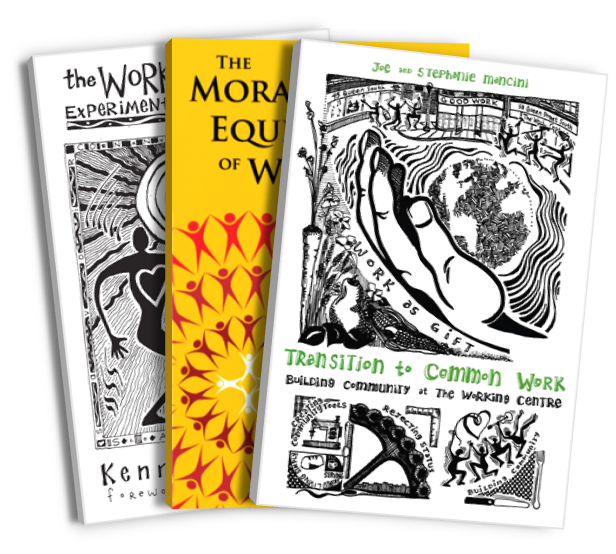
The Working Centre has reproduced several books so far that we are pleased to offer here for purchase or as free downloads.
As publisher of these works, we have an open access policy which enables anyone to access the content below electronically without charge, in the spirit of a Creative Commons. We want to encourage the circulation of these works as widely as possible without affecting the ownership of the copyright, which remains with the copyright holder. Users are welcome to download, save, perform or distribute this work electronically or in any other format.
If you are interested in using the work, please:
- Credit the authors;
- Ensure that the text is not altered and is used in full (the use of extracts under existing fair usage rights is not affected by this condition);
- The work is not resold or used for commercial purposes;
- Contact Working Centre Publications for permission for larger excerpts
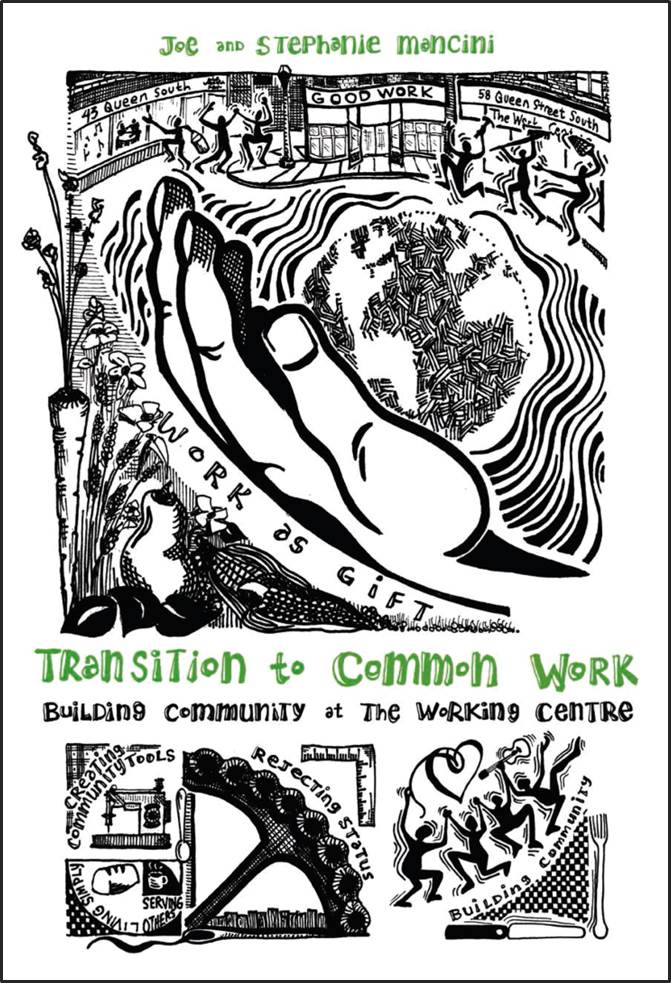
Transition to Common Work: Building Community at The Working Centre
The Working Centre: Experiment in Social Change
By Kenneth Westhues
This book explores the philosophical roots of The Working Centre, and examines the centre from a sociological perspective. It includes essays and articles written by Westhues and others.
From the first chapter: By its clasic definition, sociology has room for many kinds of linkage to social action. I have found The Working Centre an especially worthwhile linkage, because it is relatively free of sectarian, partisan, or specialized interests, and can therefore serve the goal of community development in an admirably dialogic, democratic, and holistic way.
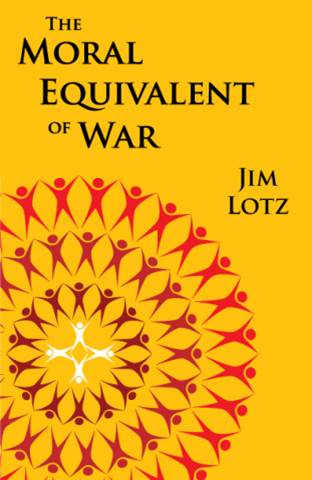
The Moral Equivalent of War
By Jim Lotz
In The Moral Equivalent of War: The New Role of Social Entrepreneurship in Community Development, Jim Lotz gives us a fresh understanding of Social Entrepreneurship. He teaches the principles of community development as the first steps social entrepreneurs should learn. Referencing a 1910 essay by William James “The Moral Equivalent of War” Lots invites us to focus on how clear sighted moral action can improve communities. He suggests that the most effective NGOs in development encourage those involved to run their own affairs in their own way, to operate democratically and efficiently while blending traditional practices and taking advantage of modern approaches to technology.
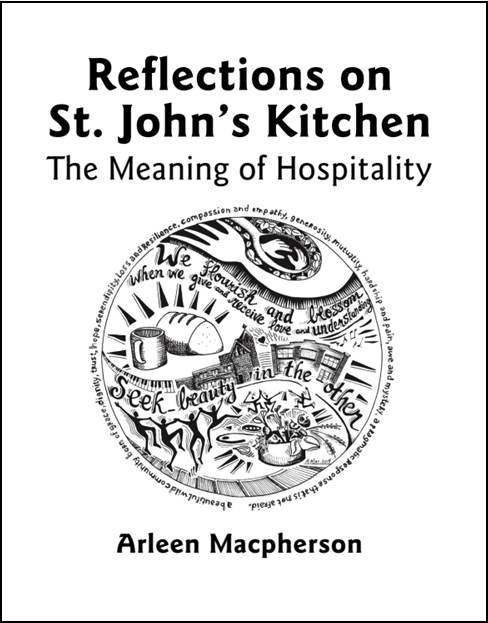
Reflections on St. John's Kitchen
Arleen Macpherson volunteered and worked at St. John’s Kitchen and The Working Centre for over 25 years. During that time, Arleen regularly contributed to Good Work News, The Working Centre’s quarterly publication reporting on the ideas, initiatives, and people in our community. Arleen’s articles provide valuable perspective into the work done at St. John’s Kitchen, and the many people who help make it the special place it is in our community.
We have collected articles written by Arleen from 1989 to 1999 for this book, and conclude with articles highlighting the 31st Annual Mayors’ Dinner, held in 2018, which celebrated the Story of St. John’s Kitchen. As part of that celebration, Arleen was among three individuals honoured for their years of dedicated work serving others and building community.
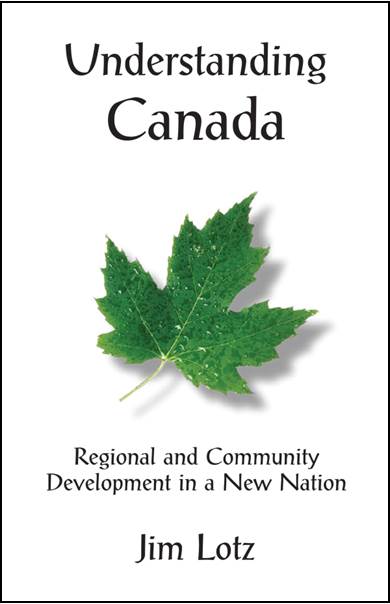
Understanding Canada
By Jim Lotz
Government intervention in the lives of Canadians has grown enormously over the years, as our country and its people struggle towards a sense of identity and purpose. How much can the State help us to develop, as individuals and as citizens? And how much can each of us do on our own to achieve personal and community development?
Understanding Canada traces the concept of community development from its beginnings in colonial Africa to recent attempts at self help in Canada, and relates it to the ideas of individualism and liberalism. Focusing especially on the Atlantic Provinces, the author looks at efforts to ‘help” the poor from the top down and from the bottom up. He analyzes the successes of the approach of the Antigonish Movement which flourished in the Thirties. Jim Lotz’ suggested models, goals and roles in community development indicate that we can meet rapid change in a positive and creative way.
This book was first published in 1977 by NC Press Limited. It is reproduced with the permission of Jim Lotz by Working Centre Publications to celebrate and understand the history of community development in Canada.
Walk With You
In partnership with documentary photographer Douglas MacLellan, The Working Centre presents Walk With You, a “zine” style collection of photographs taken over ten years capturing the people, places, and community spirit at The Working Centre. It offers a comprehensive portrait of the daily work and the relationships that bind The Working Centre community. The zine includes a poem contributed by Wendell Berry.
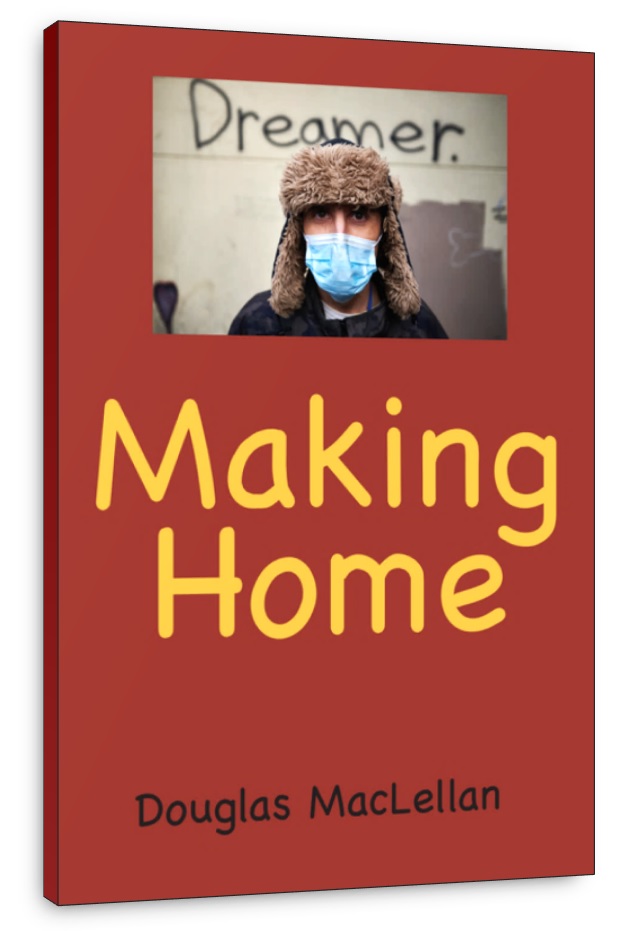
Making Home
From photographer Douglas MacLellan, Making Home is a visual journey depicted through portraits, daily life, graffiti, writings on the walls, and inanimate objects to shed light on housing and opioid use over a two-year period in Kitchener and Waterloo, Ontario. The photography is inspired by street people and the people who help them.
Places and locations depicted in the text and photographs relate to programs and community tools created by The Working Centre, a community based, socially active non-profit organization based in Kitchener. Joe Mancini, co-founder of The Working Centre, has written the introduction, adding context to MacLellan’s words and photographs.
Published by Black Moss Press
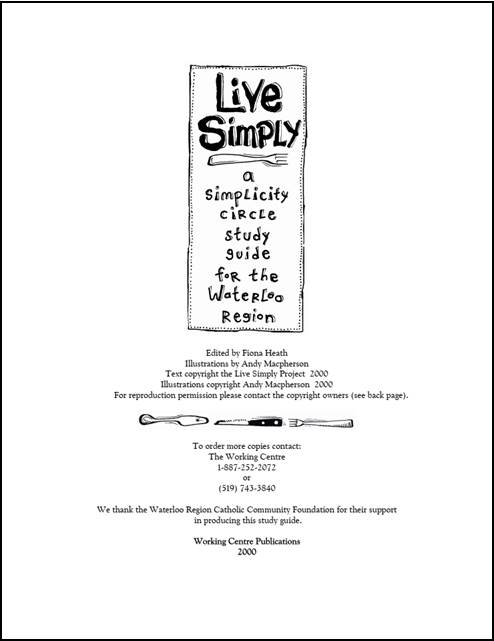
Live Simply: A Study Guide
Published in 2000, The Simplicity Circle Study Guide for Waterloo Region helps a small number of people (6-10) to work and learn together without need of outside resources or leaders. Using the model of the study circle, Fiona Heath gathered a set of readings and developed this booklet to encourage kitchen table conversations to talk about simplicity.
The Guide provides all necessary information to start a circle of your own, including practical organization tips, facilitation skills, and healthy conversation habits. It is intended to support people interested in learning more about voluntary simplicity and putting it into practice in their own lives. Divided into ten weekly sessions, the guide provides structure and focus for discussion, background information on issues, and offers local resources and examples. The texts, from both international and local authors, illustrate the diverse range of lifestyles and concerns within the simplicity movement.
